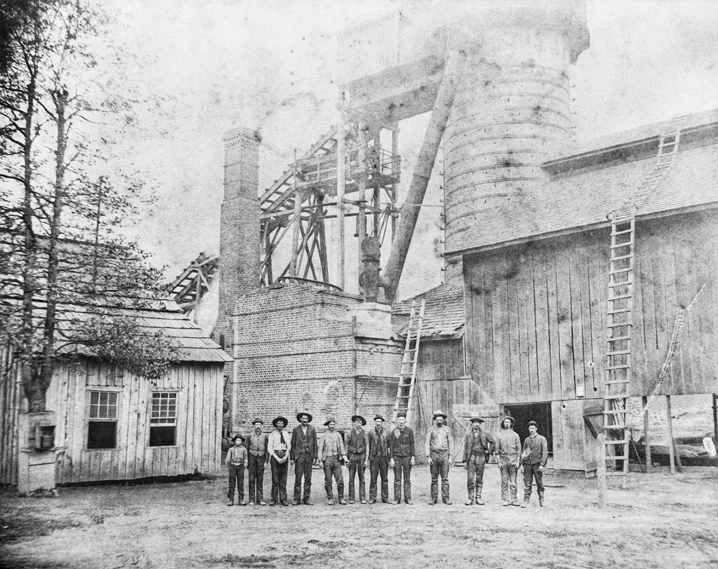Cranberry Iron Mine
The Cranberry Iron Mine is located on an immense subterranean stretch of titaniferous magnetite (titanium, iron oxide) centered around Cranberry in Avery County. Said to have been used by Indians before their contact with whites, it came to be worked mainly from surface ore by 1829 and was opened to systematic production around 1880. In 1882 a railroad facilitated movement of the ore to the furnace. The ore, low in silica and phosphorus, was characterized as the largest deposit of Bessemer ore in the South. By 1974 it was the only active iron mine left in North Carolina.
Reference:
W. F. Wilson and others, North Carolina Geology and Mineral Resources: A Foundation for Progress, North Carolina Geological Survey Educational Series no. 4 (1976).
Additional Resources:
"Cranberry iron mine: iron for the Confederacy." Civil War Trails, Inc. 2011. https://digital.ncdcr.gov/Documents/Detail/cranberry-iron-mine-iron-for-the-confederacy/1728936
State Board of Agriculture. "Cranberry Iron Mine." North Carolina and its resources. Winston [N.C.]: M. I. & J. C. Stewart. 1896. p.96. https://digital.ncdcr.gov/Documents/Detail/north-carolina-and-its-resources/2690685?item=2778389
Image Credits:
Employees stand in front of the furnace of the Cranberry Iron Mine, ca. 1895. North Carolina Collection, University of North Carolina at Chapel Hill Library.
1 January 2006 | Seaman, Jean H.